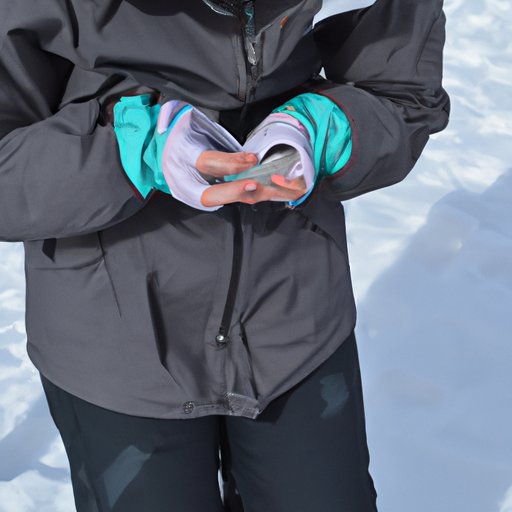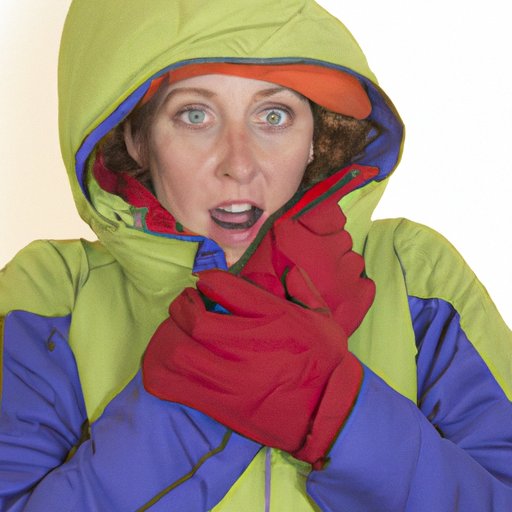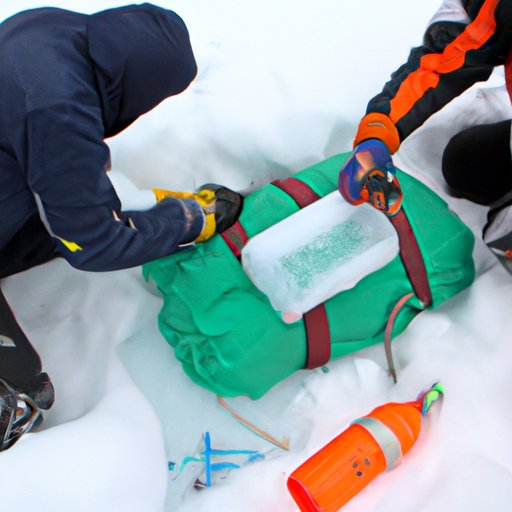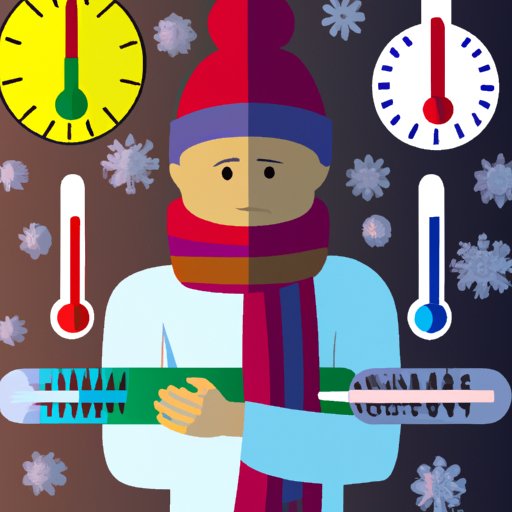Introduction
Hypothermia is a serious medical condition that occurs when the body’s core temperature drops below 95°F (35°C). It can lead to severe health complications, including organ damage, heart failure, and even death. The risk of hypothermia increases during cold weather, so it’s important to understand what causes it and how to protect yourself from its effects.

Exploring How Cold Weather Can Lead to Hypothermia
The most common cause of hypothermia is exposure to cold weather. According to the Mayo Clinic, “Prolonged exposure to cold temperatures — especially if you’re not dressed properly — can lead to hypothermia. In adults, hypothermia usually occurs when temperatures drop to less than 50 degrees Fahrenheit (10 degrees Celsius).”
People who are elderly, very young, or have certain medical conditions are more likely to develop hypothermia in moderate temperatures. For example, a study published in the journal Pediatrics found that infants under six months old were at increased risk of developing hypothermia in ambient temperatures as high as 68°F (20°C).
Other risk factors for hypothermia include being submerged in cold water, taking certain medications, and engaging in outdoor activities such as camping or hiking in cold weather. People who consume alcohol or drugs also have an increased risk of hypothermia.
Complications of hypothermia can include irregular heartbeat, confusion, and unconsciousness. As the body’s core temperature continues to drop, organs may begin to fail, leading to death.

Preparing for Freezing Temperatures and Avoiding Hypothermia
When temperatures drop, it’s important to take steps to protect yourself from the cold. Wearing multiple layers of clothing, including a hat and gloves, can help keep your body warm. It’s also important to stay dry — wet clothes can increase the risk of hypothermia.
If you plan to spend time outdoors in cold weather, it’s important to dress appropriately. According to the Centers for Disease Control and Prevention (CDC), “Dressing in several layers traps air between the layers, which helps keep you warmer. Wear a waterproof outer layer to keep you dry.”
It’s also important to stay hydrated and eat regular meals, as this can help maintain body temperature. If you plan to engage in strenuous activities in cold weather, such as skiing or snowboarding, it’s important to wear appropriate protective gear.

Treating Hypothermia in an Emergency Situation
If you suspect someone has hypothermia, it’s important to seek medical attention immediately. According to the Mayo Clinic, “Signs and symptoms of hypothermia include shivering, slurred speech, clumsy movements, confusion, and sleepiness. If you notice any of these signs, take the person’s temperature. If it’s below 95°F (35°C), the situation is an emergency — get medical help immediately.”
In an emergency situation, move the person to a warm location and remove any wet clothing. Wrap them in blankets or other warm materials and provide warm beverages, such as tea or broth, if they are conscious. Do not give them alcohol or caffeinated beverages.
Relationship Between Hypothermia and Other Health Conditions
People with certain chronic health conditions, such as diabetes, are at increased risk of hypothermia. According to the CDC, “People who have diabetes may be more susceptible to hypothermia because their bodies don’t respond to cold temperatures as well as people who don’t have diabetes.”
Older adults are also at increased risk of hypothermia due to changes in their body temperature regulation. Additionally, people with mental illness or substance abuse issues may be more likely to engage in risky behaviors that can lead to hypothermia.
It’s important to be aware of the potential long-term effects of hypothermia. According to the Mayo Clinic, “Severe cases of hypothermia can cause brain damage and death. Even if a person survives, he or she may experience lasting complications, such as memory problems, learning disabilities, and muscle stiffness.”
Analyzing How Cold Weather Impacts the Human Body and Causes Hypothermia
Cold weather affects the human body in various ways. When exposed to cold temperatures, the body’s blood vessels constrict, which reduces blood flow to the extremities. This can cause the body to become sluggish and unable to generate enough heat to maintain its normal temperature.
In addition, the body’s metabolic rate slows down in cold weather, making it harder to generate heat. This can lead to a rapid drop in body temperature, resulting in hypothermia.
To prevent hypothermia, it’s important to take steps to protect yourself from the cold. Wear multiple layers of clothing, stay dry, and limit time spent outdoors in cold weather. If you plan to engage in outdoor activities in cold weather, wear appropriate clothing and protective gear. Be aware of the signs of hypothermia and seek medical attention immediately if you suspect someone has it.
Conclusion
Hypothermia is a serious medical condition that can occur when the body’s core temperature drops below 95°F (35°C). Exposure to cold weather is the most common cause of hypothermia, but people with certain medical conditions and those engaging in outdoor activities in cold weather are at increased risk. To prevent hypothermia, it’s important to dress appropriately for cold weather and take steps to protect yourself from the cold. If you suspect someone has hypothermia, seek medical attention immediately.
By understanding the risk factors for hypothermia and taking preventive measures, you can protect yourself from this potentially life-threatening condition.
(Note: Is this article not meeting your expectations? Do you have knowledge or insights to share? Unlock new opportunities and expand your reach by joining our authors team. Click Registration to join us and share your expertise with our readers.)
